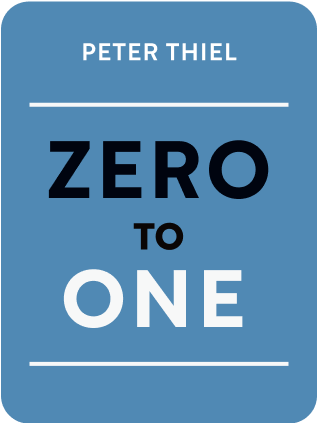

This article is an excerpt from the Shortform summary of "Zero To One" by Peter Thiel. Shortform has the world's best summaries of books you should be reading.
Like this article? Sign up for a free trial here .
Why is tesla successful? One of the most groundbreaking companies in the world, you know that Tesla works. But why?
When you ask, “Why is Tesla successful?”, there are several factors to consider. Tesla is a major company, and understanding the answer to the question, “Why is Tesla successful?” means thinking about the market, the Tesla product, and its business model.
Why Is Tesla Successful?
You’ve probably heard of Tesla. But why is Tesla successful? The start of the 21st century was marked by a boom in clean technology, spurred by several high-profile environmental disasters: smog in Beijing that was so bad people couldn’t see or breathe, arsenic polluting the water in Bangladesh, and blockbuster hurricanes in the U.S (Ivan and Katrina) prompting worries about future effects of global warming.
Entrepreneurs launched thousands of green technology companies and investors kicked in more than $50 billion. However, the rush to cleantech created a bubble. Most cleantech companies failed—Solyndra was one of the most notorious. When the maker of solar panels collapsed it left taxpayers on the hook for over $500 million. Over 40 solar companies folded or filed for bankruptcy in 2012. Understanding the nature of Green Tech important to being able to answer the question, “Why is Tesla successful?”
The Social Entrepreneurship Myth
Why is Tesla successful when so many other cleantech companies weren’t? Cleantech entrepreneurs weren’t just seeking business success, they wanted to be “social entrepreneurs.” The idea of social entrepreneurship is to combine the best aspects of entrepreneurship with the best of nonprofits (ability to make money and serve the public interest) and “do well by doing good.”
When there’s a consensus that something is good, it’s conventional, like the idea of green energy to start with. The problem is all nonprofits pursue the same priorities (the same way for-profit companies copy each other). Cleantech produced numerous indistinguishable products under the umbrella of green energy, an overly broad goal. The reason why Tesla is successful has to do with their product, same as any company.
A better way to do something good for society is to do something different. The best products are the ones no one else has thought of, which has a lot to do with the answer to the question of why Tesla is successful.
Why Tesla Is Successful in Clean Tech
Why Tesla is successful has to do with a few things. Tesla is one of the few cleantech companies that lasted because it had good answers for the seven entrepreneurial questions:
- Technology: Tesla’s technology is superior, but what made Tesla really stand out was its ability to integrate many components into one great product, the (2013) Tesla Model S sedan.
- Timing: CEO Elon Musk seized the opportunity to secure a half-billion-dollar loan from the government in the small window before the government pulled the plug on cleantech subsidies.
- Monopoly: Tesla started with a tiny submarket it could dominate: high-end electric sports cars. It then moved into the luxury electric sedan market and is positioned to continue expanding into broader markets.
- Team: Musk assembled a team good at both engineering and sales.
- Distribution: Tesla decided to own the distribution chain. It sells and services its cars in its own stores. The cost is higher than for traditional dealership distribution, but the approach gives it control over the customer experience, strengthens its brand, and saves money in the long run.
- Durability: By getting a head start, moving faster than anyone else, and establishing a strong brand, Tesla is set to extend its lead in the future.
- Secrets: Tesla realized that while rich people wanted to look green by buying an electric car, they’d rather look green and cool at the same time—if he gave them the opportunity, they’d choose his sleek car over the boxy Prius. Tesla created a product based on the secret that cleantech was in large part a social phenomenon.
Cleantech 2.0
Tesla’s success proves cleantech can work. It’s based on a valid need for cleaner sources of energy, which is a resource we can’t live without. Energy is necessary for food production, shelter, and making things that enable us to live comfortably. But why is Tesla successful in business? Here’s what they did right.
Most of the world aspires to live as Americans do, which means a growing demand for energy will create conflict and environmental challenges unless we develop new technology. The world doesn’t have enough energy resources for everyone to adopt past approaches.
Cleantech spurred optimism about the future of energy. But cleantech entrepreneurs failed to translate a macro idea of green energy into concrete micro business plans. Consider other companies’ plans when asking yourself, “Why is Tesla successful?”
This followed the pattern of the tech bubble, where many companies pursued the same idea without offering a superior solution for a specific problem. However, technology made a comeback (Web 2.0) since the dot-com crash and dramatically changed publishing, retail sales, and social life today. Cleantech could too: There’s still an overarching need for energy solutions, which is why Tesla is successful. A company that finds a specific niche and dominates a small market could reap big rewards. Although energy is a big problem, entrepreneurs who create Energy 2.0 will have to start small.
Why is Tesla successful? Thanks to a combination of marketing, great tech, and more, Tesla continues to prove that Cleantech can work.

———End of Preview———
Like what you just read? Read the rest of the world's best summary of Peter Thiel's "Zero To One" at Shortform .
Here's what you'll find in our full Zero To One summary :
- Why some companies genuinely move the world forward when most don't
- How to build a company that becomes a monopoly (and why monopolies aren't bad)
- Silicon Valley secrets to selling products and building rockstar teams






